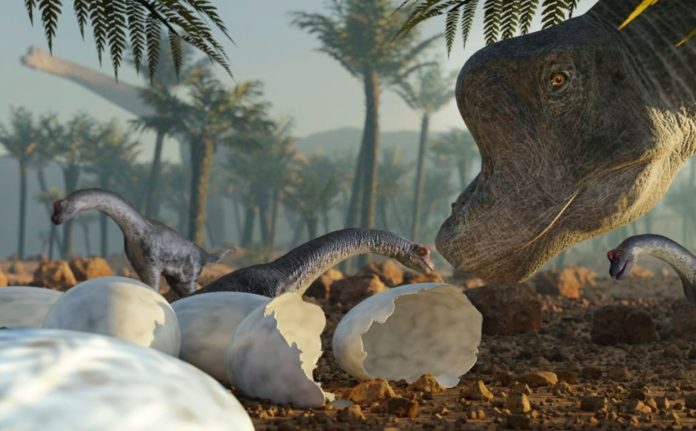They infected our distant mammalian ancestors 106 million years ago
Around 106 million years ago, when the world was completely dominated by dinosaurs and our mammalian ancestors lived hidden in burrows, a virus managed to integrate into the genome of one of them. And just two million years later, history repeated itself and another virus, closely related to the first, did the same. Now, a team of biologists from the University of Oxford has just found the remains of these viruses inside our own cells.
In the words of Aris Katzourakis, co-author of the research, “It’s kind of hiding in plain sight in the human genome.”
These authentic fossil viruses could be, according to the researchers, the oldest discovered to date.
It may sound strange, but the human genome is literally chock-full of fossil viruses. There are so many that, according to estimates, between 5% and 10% of our entire genome consists of precisely this class of remnants of ancient viruses.
Most of them are retroviruses, specialized in creating copies of their RNA genes in the genomes of the cells they infect. And when that happens in cells that give rise to eggs and sperm, those copies can be passed down from generation to generation.
Over time, however, the genes of these viruses mutate until finally they are no longer capable of giving rise to more viruses and their remains, already inactive, remain embedded in the genome.
But the two newly discovered viruses are different. For starters, these are not retroviruses, but DNA viruses, specifically an ancient group of viruses called Mavericks. Its fossil remains have been found in various types of animals, such as fish, amphibians or reptiles, but never in mammals.
According to the researchers, however, these two viruses, in particular, must have been a plague for mammals from the moment they began to evolve, about 180 million years ago, in the Jurassic, until at least 105 million years ago, in the Cretaceous, when viruses began to insert themselves into genomes.
After that time, the Mavericks seem to die out in mammals for reasons that are still unclear, although they continued to affect fish and other types of animals.
“We further estimate the age of the viral ancestor around 268 [million years],” they write.
“Our results provide evidence for some of the oldest viral integrations in the human genome and insights into the ancient interactions of viruses with the ancestors of modern-day mammals”.
“There aren’t that many non-retroviral viruses in our genome,” Katzourakis told New Scientist. “This is the only DNA virus in the human genome that we know of, and it’s certainly the oldest non-retroviral insertion in our genomes.”
Of course, other even older viral insertions may have occurred, but their fossil remains may have been lost, or perhaps have mutated so much that they are unrecognizable.
Source: 10.1101/2022.02.01.478760
Image Credit: Getty
You were reading: Two fossilized viruses from the age of the dinosaurs found in our genome
